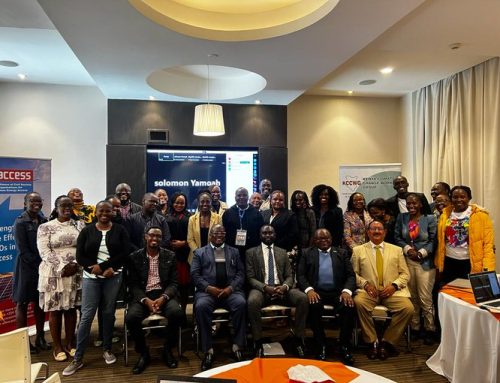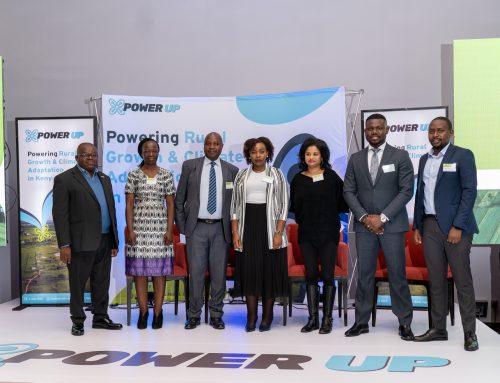The 4th edition of Kenya’s Clean Cooking Week was held on October 24-26, 2023. Stakeholders reflected on the progress of reaching the Sustainable Development Goal (SDG) 7 on sustainable energy for all.
The 3-day event was held in Nakuru County under the theme, ‘delivery of clean cooking innovations towards universal access to clean cooking solutions: Invest, Innovate, Involve, and Transform’. The meeting was convened by the Clean Cooking Association of Kenya (CCAK) and the Ministry of Energy and Petroleum in partnership with ACCESS Coalition and other organizations.
Alex Wachira, the Principal Secretary, Ministry of Energy and Petroleum gave the keynote address stating that clean cooking should not be seen as a privilege but a fundamental necessity. He underscored the role of men in advocating for uptake of clean cooking solutions in households. “If men embraced the responsibility of advancing the cause of clean cooking and empowering our women, we could save lives and our environment,” he said.
He added, “this will help 65% of the population still using traditional cooking methods like firewood and charcoal transition to cleaner, sustainable alternatives, thereby improving health and reducing environmental impact.”
The aim of the event was to create awareness on clean cooking solutions amongst participants drawn from the government, counties, civil society organizations and developers of cooking technologies.
During the event, ACCESS Coalition released a position statement calling for new approaches to unlock clean cooking progress and had speaking and moderation roles in three panel discussions.
Speaking during the session on Clean Cooking Sector Knowledge management and data gaps, ACCESS Coalition’sInternational Coordinator Patricia Mbogo, highlighted the prevalent end-user data gaps hindering progress in the cooking sector. Data-sets such as types of fuels, cooking technologies, economic and socio-cultural drivers of cooking preferences and practices, plays a critical role in the development of cooking solutions. “We have data generators, but it’s vital to tailor information for policymakers. Inclusive energy planning demands an understanding of community-level dynamics for effective data packaging,” she said.
ACCESS highlighted the importance of understanding end users’ needs and context as the foundation of designing socially and financially viable solutions and transition pathways. This entails creating more understanding on the cooking practices and preferences of end-users.
The transition must be inclusive, leaving no-one behind especially the vulnerable and end-user groups. It should promote gender equality and social inclusion, including targeted subsidies to address affordability aspects.
Kenya has set a target to achieve 100 percent universal access to modern cooking solutions by 2028. Only one percent of the population has electricity access, notwithstanding 68 percent of the population is connected to electricity. Enabling policies and grid reliability can help ‘leapfrog’ increased access to electric cooking.
Households and community cooking preferences in Kenya and Africa are driven by their social and cultural context, and by affordability. Most low-income households in rural and peri-urban areas rely on biomass for cooking. There’s an urgent need to significantly shift to needs-based planning approaches backed up by good data.
ACCESS Coalition and other CSOs can help in creating awareness and demystify these cultural beliefs and practices on cooking with end users. It is by building trust in new technologies and approaches that will help in the adoption of new technologies.
In his closing remarks, Daniel Wanjohi, the chairperson of CCAK called on all stakeholders to think differently and adopt different innovations in order to achieve universal access to clean cooking for all.





Leave A Comment